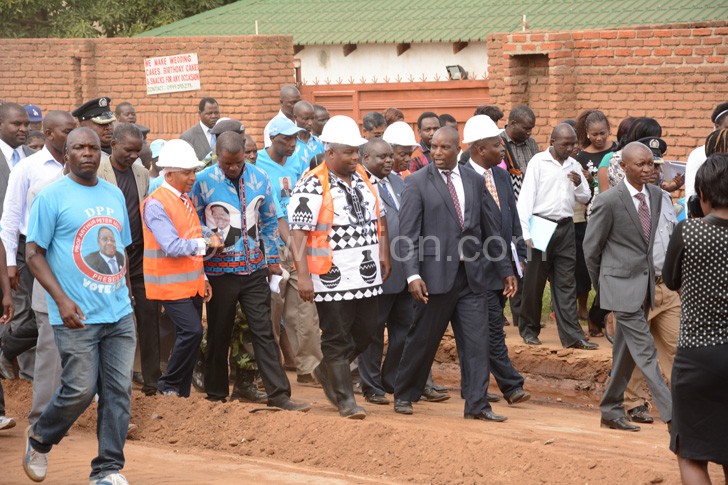World Bank faults cities on revenue collection
The World Bank has faulted the country’s city councils for failing to maximise revenue collection despite having a large base and considerable latitude in setting property tax rates.
In a report titled Malawi Urbanisation Review Leveraging Urbanisation for National Growth and Development dated April 2016, the World Bank says urban councils have a formal mandate to meet a wide range of urban needs but are de facto engaged in providing a more limited set of public goods and services.

Reads the report: “Management of urban functions are less efficient and also suffer from limited resources. In the case of some services, notably solid waste management, city council performance is sub-optimal as they resort to a force account modus operandi, relying directly on city council equipment and labour, rather than through contracting with the private sector.
“In other cases, notably roads, city councils face severe funding constraints, some of which can be attributed to the expenditure patterns of city councils, characterised by high proportion of payroll-related costs in recurrent expenditures which is at 40-50 percent and the total expenditures at 32-47 percent, in return for a very low rate of capital expenditure which is less than 10 percent of all city spending.”
The report notes that the institutional and legal framework regulating property taxation is cumbersome, inappropriate, unrealistic and outmoded to effectively update the tax rolls.
In addition, the report further notes, there is a high risk of property taxes to be misplaced or misappropriated while taxpayers are reluctant to pay, given the poor services direct incentives for encouraging better city council staff performance are absent because enforcement and compliance are major challenges in mobilising property taxes.
“Because of these, Malawi has a low urban population share and its urban population growth rate is about one percentage point higher than its rural population growth rate. This is half the urbanization rate of sub-Saharan Africa as a whole. Urbanisation in Malawi is slower than in other agrarian countries with low urban population shares, such as Ethiopia, Rwanda and Uganda,” reads the report.
Ministry of Local Government and Rural Development Principal Secretary Stewart Ligomeka yesterday said it would be difficult to comment on a report he was yet to read.
He said: “I have not had a chance to read the report as I have been away. Let me get back to you once I have looked at it.”
However, Ben Kaluwa, a professor of economics at Chancellor College, a constituent college of the University of Malawi, agreed with the observations in the report, saying there was “too much misuse of funds” in most local councils; hence, despite collecting money most of the funds are abused.
He said: “City councils have land which can be a very good source of generating revenue, but too much dependency syndrome makes them misuse all the moneys in the hope they will be given more. That is why cities are not growing.”
Kaluwa added that outsourcing of projects is a potentially good area which can be deployed and save on human resources.
Ministry of Lands, Housing and Urban Development spokesperson Charles Vintulla asked for more time to look at the facts.
Malawi has four cities—Lilongwe, Blantyre, Zomba and Mzuzu—which form the economic core of the national economy with their contribution to national gross domestic product (GDP) far larger than their population share.
The cities account for 13 percent of the population, but generate 33 percent of GDP, according to the World Bank which said the 85 percent population in rural areas contribute 62 percent of GDP.






City and lands are the most corrupt gurus in the country. Kalua is right.